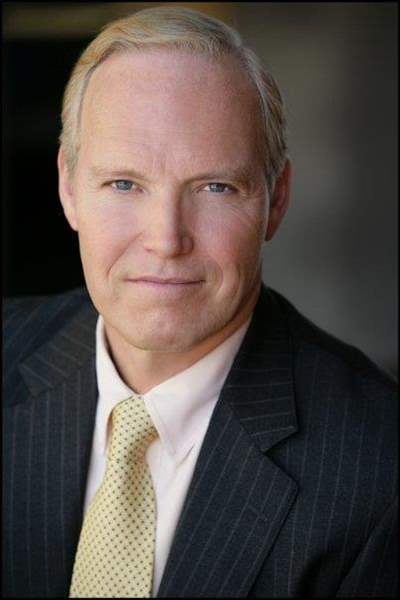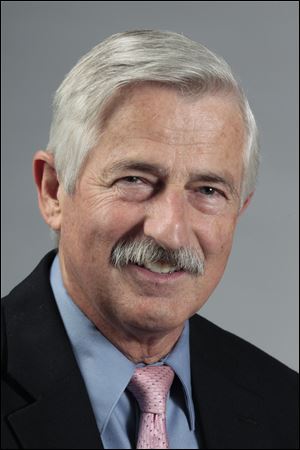
COMMENTARY
Why a tobacco heir isn’t fuming over anti-smoking ruling
7/28/2014
Reynolds

Walton
You might assume that Patrick Reynolds is furious these days. R.J. Reynolds was his grandfather, and the giant tobacco company he founded just got socked with a $23.6 billion judgment by a Florida jury that was determined to send a strong message about the evils perpetrated by the cigarette industry.

Reynolds
Message received, but the grandson couldn’t be happier.
Patrick Reynolds is the rebel in the family. He watched emphysema and lung cancer take the lives of his father, R.J., Jr., and his oldest brother, R.J. III.
He vowed to do something about it. He could have lived a comfortable life as an heir to the family fortune. Instead, he bolted.
Today, he is the executive director of the Foundation for a Smokefree America. His mission is to educate the public about the health dangers of smoking and to work for comprehensive bans on smoking in public places.
I first met Mr. Reynolds several years ago, when The Blade was editorializing vigorously for such a ban in Lucas County and later pushing for a statewide ban, which Ohio voters approved in 2006 as the Smoke-Free Workplace Act.
He came to Toledo to help in those efforts. He visited schools to talk to young people about smoking and the importance of not starting. He sat down with our editorial board and lobbied for the cause, even though we needed no convincing.
It’s been full throttle ever since — lecturing here, flying there, taking his message wherever he’s invited. It’s doubtful he’s invited to very many family reunions, however.
So he was delighted by the jury’s huge award against his family’s company.
“This is a great victory,” he told me in an email. “Many people feel these lawsuits have no validity, and that smokers should be accountable for the death and disease they bring on themselves by their choice to continue smoking. But does this mean the tobacco companies should go completely unaccountable?”
The industry lied for decades, he says, about the dangers of smoking and targeted minors in advertising campaigns, never warning about the addictiveness of nicotine.
It’s the threat to young people that bothers him most. Ninety percent of smokers became addicted before the age of 19, he points out.
Mr. Reynolds is clearly a zealot on the issue, but he is also a pragmatist. He accepts that the $23.6 billion punitive award against the R.J. Reynolds company almost certainly will be reduced during the appeals process.
Consider that the Pensacola jury award of compensatory damages was just $16.8 million. That’s still a significant amount of money, but a small fraction of the punitive award.
Even if the judgment is scaled back on appeal, Mr. Reynolds is confident the jury award will mean many similar lawsuits.
Florida courts have become a legal battleground on the issue. The case was just one of thousands filed there since the Florida Supreme Court rejected a $145 billion class-action award in 2006.
It was only half a victory for the industry. The same court said that henceforth, smokers and their families would only have to prove addiction and that smoking caused their illness or death.
Predictably, legal counsel for R.J. Reynolds called the Florida jury’s award of damages “grossly excessive.” Counsel expressed the hope that the appeals court will not allow “this runaway verdict” to stand.
You could argue that the business R.J. Reynolds’ legal eagles are trying to protect is a runaway industry, oblivious to the harm it causes and determined to recruit a new generation of customers here and abroad.
So the legal fight goes on, buoyed by an astonishing penalty handed down by a group of Florida jurors.
I’ve said it before and I’ll say it again here: Nothing I was involved with editorially over the years at The Blade gave me greater satisfaction than working with John Robinson Block — The Blade’s publisher and editor-in-chief — to advocate adoption of Ohio’s ban on smoking in public places. Although enforcement is not easy and some establishments continue that to flout the law, there is no denying that the air we breathe is cleaner.
As a result of the Florida verdict, Mr. Reynolds predicts thousands more plaintiffs will win. “Tobacco will become more and more expensive and increasingly out of reach of teens,” he says. “We will have a smoke-free society one day.”
I admire Patrick Reynolds for his courage and resolve, but I don’t know that we’ll ever reach that point. I’m forever mindful of the quotation attributed to Mark Twain: “Giving up smoking is the easiest thing in the world. I know, because I’ve done it thousands of times.”
But if Mr. Reynolds’ crusade to keep young people from starting to smoke in the first place gains enough traction, we’ve got a fighting chance.
Thomas Walton is the retired editor and vice president of The Blade. His column appears every other Monday. His commentary, “Life As We Know It,” airs each Monday at 5:44 p.m. on WGTE-FM 91.
Contact him at: twalton@theblade.com